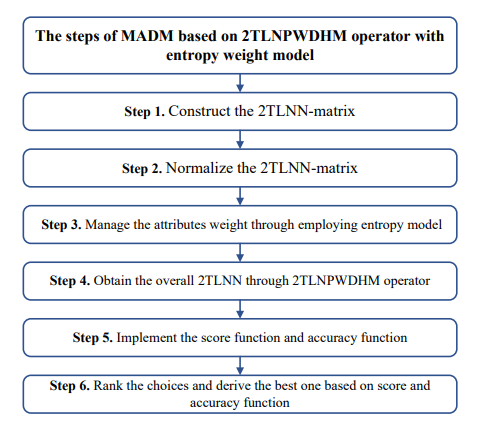Enhancing Multiple-Attribute Decision-Making Framework for Talent Cultivation Quality Evaluation Through Using Weighted Dual Hamy Mean and Prioritized Aggregation Operators
Keywords:
Multiple-attribute decision-making (MADM); 2TLNSs; 2TLNPWDHM; talent cultivation quality evaluation; computer information majorAbstract
: With the rapid development of the economy and the transformation and upgrading of
industrial structure, universities have increased their focus on theoretical knowledge and
application, actively providing practical platforms for students, enriching the connection
between theoretical knowledge and practice, deepening the reform of quality education,
constructing a modern education system, and ensuring that students can adapt their
professional skills to the requirements of industry technology in the field of computer
information. Cultivating high-quality computer information talents can not only promote better
employment for students, but also promote the development of computerinformation education
in universities. The talent cultivation quality evaluation in practical aspects of computer
information major is looked as the multiple-attribute decision-making (MADM) issue. In this
paper, we extended the weighted dual Hamy mean (WDHM) operator and prioritized
aggregation (PA) operator to 2-tuple linguistic neutrosophic sets (2TLNSs) to propose the 2-tuple
linguistic neutrosophic prioritized WDHM (2TLNPWDHM) operator. Finally, a numerical
example for talent cultivation quality evaluation in practical aspects of computer information
major is employed to verify the 2TLNPWDHM operator. The main contributions of this study
are summarized: (1) the 2TLNPWDHM operator is built; (2) the 2TLNPWDHM operator is
designed to cope with the MADM with 2TLNNs; (3) a numerical example for talent cultivation
quality evaluation in practical aspects of computer information major is supplied to proof the
designed method; (4) some comparative studies are utilized to verify the rationality of the
2TLNPDHM
Downloads

Downloads
Published
Issue
Section
License
Copyright (c) 2024 Neutrosophic Sets and Systems

This work is licensed under a Creative Commons Attribution 4.0 International License.







